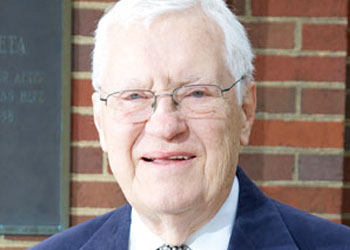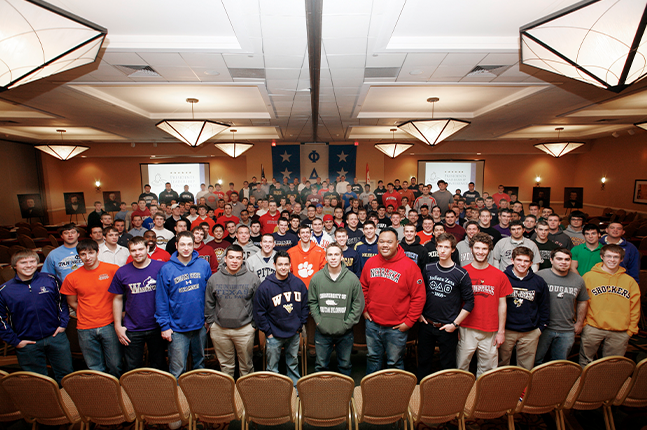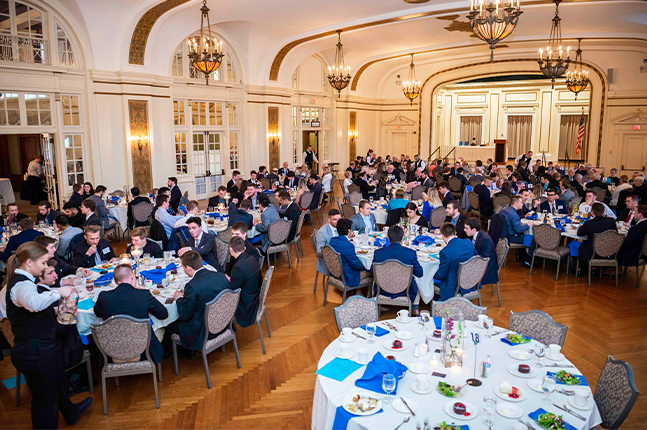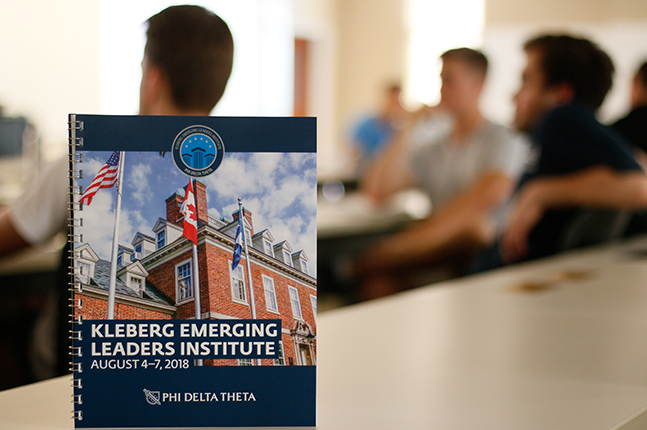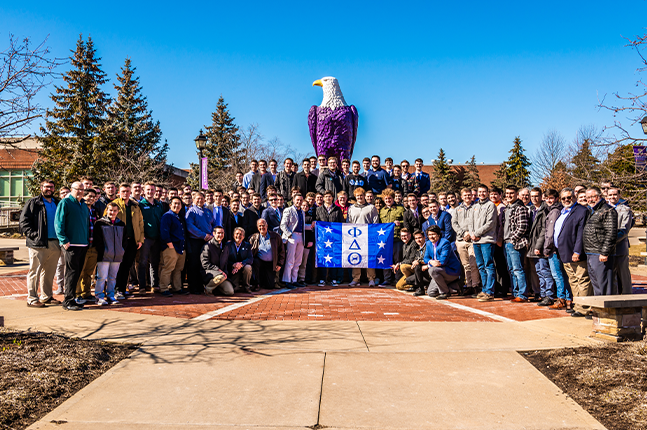A Famous Phi and Jefferson Davis
A stamp issued by the United States Postal Service calls to mind a human-interest story of special significance to members of Phi Delta Theta. The stamp which brings to mind the anecdote features a portrait of the Southern Confederacy President, Jefferson Davis.
When Southern artillery shelled Fort Sumter in the harbor of Charleston, South Carolina, on April 12, 1861, fifteen chapters of Phi Delta Theta had been chartered, three of which already had closed. Only one chapter – at the University of Michigan – would be added during the four years of the war.
When the war broke out, Hilton U. Brown, Butler 1880, was only two years old. Little did he know when he was initiated into Phi Delta Theta at Butler University on October 20, 1874, what the future held for him. Following his graduation, he remained active in the Fraternity and was elected president of the General Council in 1882 at the Richmond, Virginia Convention. At the age of 23, he was one of the youngest members ever elected to that high position.
The following year, on October 30, 1883, he was married to Jennie Hannah, his college sweetheart. For their wedding trip, the recently elected president of the General Council, together with his new bride, traveled from Paris, Illinois, to Terre Haute, Indiana, to Louisville, Kentucky, to Montgomery, Alabama, and New Orleans, Louisiana, by rail. A few of his Fraternity brothers met the couple in Montgomery, and in the course of their visit in that city, they made an excursion to the capitol, where they viewed the outside iron balcony where Jefferson Davis took the oath of office when he became president of the Southern Confederacy. It was during this visit that it occurred to Brown, a young newspaper reporter by profession, that it would be interesting to contact Mr. Davis when they traveled through Biloxi.
The young couple traveled to the Davis home in a hired horse and buggy, traveling first through a small forest and then an orange grove to the house, which was located perhaps a hundred and fifty yards from the Gulf of Mexico. Having first been greeted by Mrs. Davis, who extended a warm welcome, they were informed that Mr. Davis was always delighted to meet strangers from afar and, in a moment, the man who served as president of the Confederacy entered from a side room. Here, in his own words, is Brother Brown’s description of the meeting.
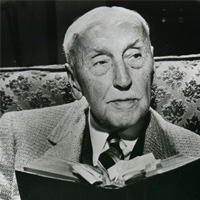
“Everybody in the North was familiar with the name of the president of the Confederacy, but I had never seen but one man who had seen him. Mr. Davis approached us cordially with outstretched hands and the greeting could not have been more gracious. As I remember him he was rather under size but not meager. He wore a soft graying beard that strayed under his chin. There appeared to be a cast in one eye, but it was scarcely discernible without staring. His step was light, his bearing that of a gentleman of easy approach. In a moment we were made as welcome as if we were old acquaintances.”
During the interview, Mr. Davis expressed great hope for the future of the South. He expressed the belief that the forests to the north of the Ohio River would one day be exhausted and the country would look to the South for lumber. He noted that iron and coal already had been discovered in several southern states. As for agriculture, he indicated that farmers were learning to rotate their crops and, during cold winter months in the North, the South would supply tropical fruits and fresh vegetables.
When the interview concluded and the Browns were preparing to depart, Mr. Davis asked them to stay for a moment. Hilton U. Brown writes, “He went to the orchard. Presently he came back with an arm load of orange boughs heavy laden with golden fruit that he had taken from his trees outside the door. Carrying these in one arm, he offered the other to Mrs. Brown and escorted her down the steps. At the buggy he helped her into the vehicle as gallantly as a bridegroom, and more gracefully than the amazed and blushing but grateful groom could have done, and placed the oranges in her arms.”
When the Browns returned home, Hilton submitted the report of his interview to the editor. It was so well received that his weekly salary was increased from $10 to $13.
I was first exposed to Hilton U. Brown at the Centennial Convention in Oxford, which I attended as an undergraduate. I’m not sure I personally met Brother Brown on that occasion, but I certainly learned who he was and his importance in the history of our Fraternity. After joining the headquarters staff in 1951, I became very well acquainted with Hilton U. Brown, and we remained good friends the rest of his life.
When he appeared at the 1958 Convention in Asheville, North Carolina, he already had passed his 99th birthday and, incidentally, made the trip from Indianapolis to the convention city alone. Upon his arrival at the hotel, I escorted him to his room to be sure that it was in order and to render assistance as needed. Once all the details were handled, Brother Brown reached into his coat pocket and withdrew two cigars. He handed one to me and, keeping the other for himself, said, “Now, Bob, sit down and tell me all about Phi Delta Theta.” It reminded me of the cordial greeting extended to him by Jefferson Davis and, of course, it was typical of Brother Brown to be interested in all facets of our Fraternity. He died two weeks later, just five months short of his centennial celebration.
Brother Robert J. Miller joined the General Headquarters staff in 1951 and was named Executive Secretary (later Executive Vice President) in 1955, a position from which he retired in 1991. He continued to serve as President of the Educational Foundation until 1997 and currently serves as the Historian of Phi Delta Theta.

